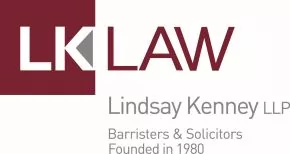- within Finance and Banking topic(s)
- with Senior Company Executives, HR and Finance and Tax Executives
- in European Union
- with readers working within the Accounting & Consultancy, Banking & Credit and Healthcare industries
Trump-era proposed tariffs on Canadian goods have introduced uncertainty and volatility into Canada's M&A market. However, uncertainty in the market is nothing new to Canadian M&A participants of the last 5 years, who have navigated regulatory changes, the COVID-19 pandemic, as well as other geopolitical factors affecting M&A on a macroeconomic level. During times of uncertainty, one of the key legal mechanisms that comes into focus in M&A agreements is Material Adverse Effect ("MAE") clauses. MAE clauses are designed to allocate risk between the parties, allowing a purchaser to walk away from a deal if a significant event occurs that materially impacts the target company's value. Courts will interpret MAE clauses based on the specific language of the contract and the surrounding facts when evaluating whether an event meets the materiality threshold. In 2020 the Ontario Superior Court of Justice considered the elements of an MAE in the context of the COVID-19 pandemic. In Fairstone Financial Holdings Inc. v. Duo Bank of Canada, the Court outlined three key elements when considering an MAE:
- Unknown Event: the event must be unforeseen at the time the parties entered into the agreement. If the risk was known or foreseeable, it would not typically qualify as an MAE.
- Threat to Overall Earnings Potential: the adverse effect must significantly impact the target's overall earnings potential or fundamental business operations, rather than just causing short-term disruptions.
- Durational Significance: the adverse effect must have a long-term impact on the target company, rather than a temporary downturn or short-term disruption.
In Fairstone, the Court found that while the economic downturn caused by COVID-19 did meet the above three elements; the purchaser was unable to rely on the MAE clause to exit from the transaction because the purchase agreement included a carve-out for "emergencies, crises and natural disasters". Fairstone illustrates that while MAE clauses are common in M&A transactions, their application is often subject to strict judicial scrutiny, and courts will generally interpret MAE clauses narrowly. As noted by the Court, "MAE clauses must be construed so as to give purchasers the protections they bargained for. They should not be stretched to provide either party protections they could have had but did not bargain for." Given the potential challenges of invoking an MAE after the fact, companies can adapt their M&A strategies when dealing with the tariffs in several ways:
- Explicit Drafting: in light of the above three elements, the parties should consider specific language to include in the definition of MAE to ensure that the parties intentions are met and risk is properly allocated;
- Specific Carve-Outs: while parties do not have a crystal ball, when drafting MAE clauses, time should be spent carefully considering explicit exclusions or inclusions for changes in trade policies, regulations or economic conditions;
- Tariff Pricing Adjustments: parties can attempt to include pricing adjustments to account for potential tariff-related costs; and
- Robust Due Diligence: purchasers should consider increasing their due diligence scrutiny on supply chain exposure and geopolitical risks before committing to deals.
About Mackrell International – Canada - Lindsay Kenney LLP is a full service business law firm with offices in Vancouver and Langley, BC and a member of Mackrell International. Mackrell International – Canada is comprised of four independent law firms in Alberta, British Columbia, Ontario and Quebec. Each firm is regionally based and well-connected in our communities, an advantage shared with our clients. With close relations amongst our Canadian member firms, we are committed to working with clients who have legal needs in multiple jurisdictions within Canada.
This article is intended to be an overview and is for informational purposes only.



